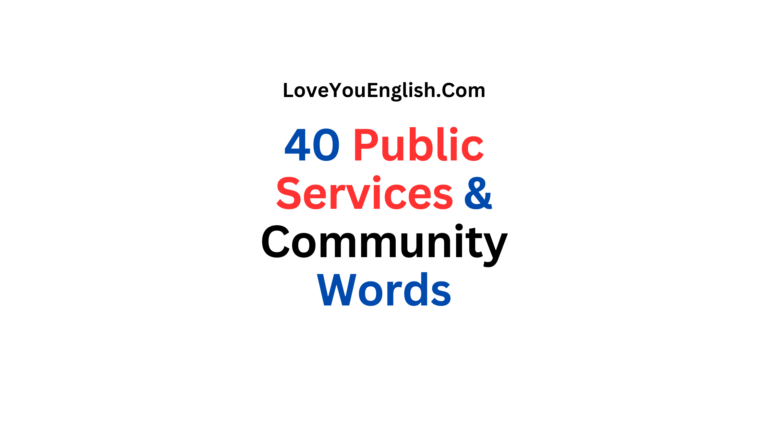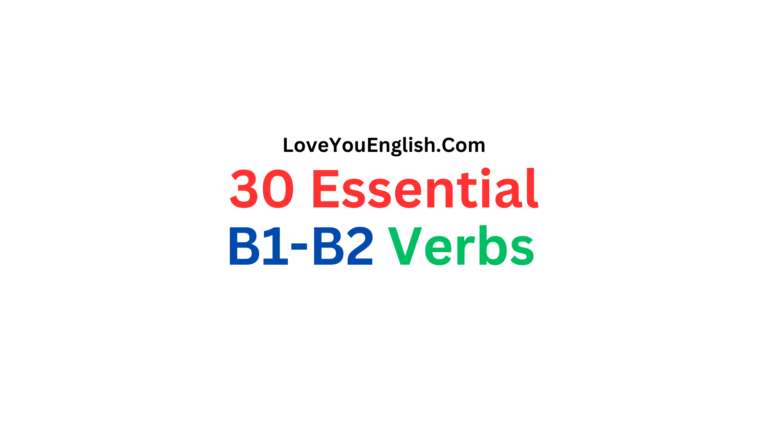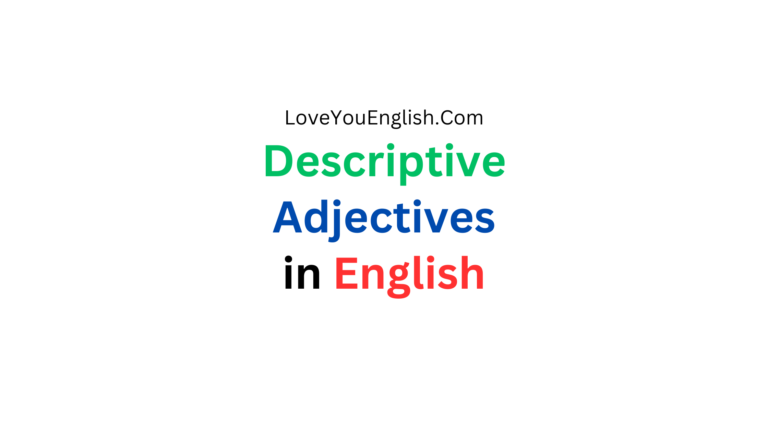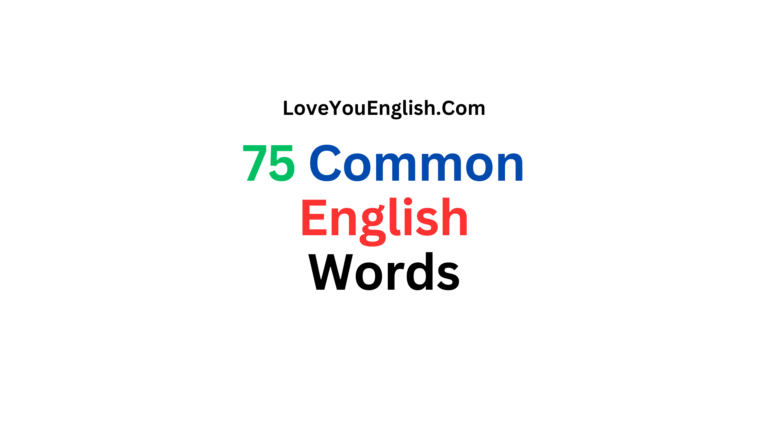30 Advanced IELTS Words to Boost Your English Skills
30 Advanced IELTS Words to Boost Your English Skills
Building your vocabulary is really important if you want to succeed in the IELTS exam.
In this blog post, we will explore another group of 30 advanced words that can boost your score on the IELTS test.
Each word comes with a definition, an example sentence, and some helpful tips for using it effectively.
Let’s dive in!
1. Assess
Definition: To evaluate or estimate the nature, ability, or quality of something.
Example: The teacher will assess the students’ essays based on creativity and clarity.
Usage Tip: “Assess” is perfect for discussing evaluations or measurements.
2. Contribute
Definition: To give or add something to a common cause or goal.
Example: Everyone’s hard work contributed to the success of the project.
Usage Tip: Use “contribute” to talk about adding value or effort to a group effort.
3. Debate
Definition: To argue or discuss different sides of an issue.
Example: The students debated the pros and cons of online education.
Usage Tip: “Debate” is useful for discussing arguments or different viewpoints.
4. Determine
Definition: To find out or establish something through investigation or analysis.
Example: Scientists determine the effectiveness of new treatments through experiments.
Usage Tip: Use “determine” when you need to describe finding out or deciding on something.
5. Emerge
Definition: To come into view or become apparent.
Example: New technologies continue to emerge in the field of medicine.
Usage Tip: “Emerge” works well for describing things that become visible or known.
6. Establish
Definition: To set up or create something on a firm basis.
Example: The company aims to establish a strong presence in the international market.
Usage Tip: “Establish” is useful for talking about starting or building something.
7. Facilitate
Definition: To make a process easier or more achievable.
Example: The new software facilitates the management of large projects.
Usage Tip: Use “facilitate” when you want to describe making things easier or smoother.
8. Generate
Definition: To produce or create something.
Example: Renewable energy sources generate electricity without harming the environment.
Usage Tip: “Generate” is great for discussing the creation of results, ideas, or energy.
9. Hypothesis
Definition: A proposed explanation based on limited evidence as a starting point for further investigation.
Example: The scientist proposed a hypothesis about the causes of climate change.
Usage Tip: Use “hypothesis” when discussing initial ideas that require testing or research.
10. Incorporate
Definition: To include or integrate something as part of a whole.
Example: The new curriculum incorporates advanced teaching methods.
Usage Tip: “Incorporate” is useful for describing the inclusion of elements or features.
11. Insight
Definition: An accurate and deep understanding of a person or thing.
Example: Her book offers valuable insights into the culture of ancient civilizations.
Usage Tip: Use “insight” for discussions about deep or meaningful understanding.
12. Justify
Definition: To show that something is right or reasonable.
Example: You must justify your decisions with clear explanations.
Usage Tip: “Justify” is helpful for arguing or explaining why something is valid.
13. Legislate
Definition: To make or enact laws.
Example: The government plans to legislate new environmental regulations.
Usage Tip: Use “legislate” when referring to the creation or passing of laws.
14. Manifest
Definition: To show or demonstrate clearly.
Example: Her excitement was manifest in her enthusiastic speech.
Usage Tip: “Manifest” is ideal for describing clear or obvious displays of emotions or qualities.
15. Negotiate
Definition: To discuss and reach an agreement.
Example: The two countries are negotiating a new trade agreement.
Usage Tip: “Negotiate” is useful for talking about reaching agreements or resolving issues.
More cool topics:
- Essay about My School for Students and Children
- Essay on Friendship for Students and Children
- Essay on Diwali for Students and Children
- Republic Day Essay in English for students
- Essay on Holi for Students and Children
16. Obvious
Definition: Easily perceived or understood.
Example: It was obvious that the team had put in a lot of effort.
Usage Tip: Use “obvious” to describe something that is easily seen or understood.
17. Optimize
Definition: To make the best or most effective use of something.
Example: The company is working to optimize its production processes.
Usage Tip: “Optimize” is great for discussions about improving efficiency or effectiveness.
18. Persuade
Definition: To convince someone to do or believe something.
Example: She used facts and logic to persuade the audience.
Usage Tip: Use “persuade” when talking about convincing others or changing opinions.
19. Quantify
Definition: To measure or express the amount of something.
Example: Researchers need to quantify the impact of the new policy.
Usage Tip: “Quantify” is useful for discussing measurement or calculation of amounts.
20. Relevant
Definition: Closely connected or appropriate to the matter at hand.
Example: The information was relevant to the topic of the discussion.
Usage Tip: “Relevant” is ideal for discussing things that are pertinent or applicable.
21. Signify
Definition: To be an indication or sign of something.
Example: The changes in the policy signify a shift in the government’s approach.
Usage Tip: “Signify” is useful for discussing what something indicates or represents.
22. Subsequent
Definition: Occurring or coming after something else.
Example: The subsequent events led to a major breakthrough.
Usage Tip: Use “subsequent” to talk about what happens next in a sequence.
23. Theorize
Definition: To form a theory or set of ideas to explain something.
Example: Scientists theorize about the origins of the universe.
Usage Tip: “Theorize” is useful for discussing ideas or explanations based on observations.
24. Tendency
Definition: An inclination or a natural disposition to act or think in a certain way.
Example: There is a growing tendency for people to use smartphones for everything.
Usage Tip: “Tendency” is ideal for describing trends or inclinations.
25. Unveil
Definition: To reveal or make something known for the first time.
Example: The company will unveil its new product next month.
Usage Tip: Use “unveil” for discussing the introduction of new ideas or products.
26. Viable
Definition: Capable of working successfully or being effective.
Example: The plan was considered viable by all members of the team.
Usage Tip: “Viable” is useful for talking about whether something can work or succeed.
27. Withstand
Definition: To remain strong or resilient against something.
Example: The building was designed to withstand severe weather conditions.
Usage Tip: Use “withstand” when discussing resistance to challenges or forces.
28. Yields
Definition: The results or returns from a particular action or effort.
Example: The investment yields significant profits over time.
Usage Tip: “Yields” is great for discussing the outcomes or returns of efforts or investments.
29. Zealous
Definition: Showing great enthusiasm or dedication.
Example: She was a zealous supporter of environmental conservation efforts.
Usage Tip: Use “zealous” to describe someone’s passionate involvement in a cause.
30. Abstract
Definition: Existing in thought or as an idea but not having a physical or concrete existence.
Example: The concept of freedom is an abstract idea that is hard to define.
Usage Tip: “Abstract” is useful for discussing ideas or concepts that are not tangible.
How to Use These Words in Your IELTS Preparation
To make the most of these advanced words, follow these strategies:
- Contextual Practice: Try using these words in different contexts to see how they fit.
- Active Use: Incorporate these words into your speaking and writing practice.
- Engage with Content: Read articles, watch videos, or listen to podcasts that use these words.
- Create Flashcards: Make flashcards with the word on one side and the definition and example on the other.
Conclusion
Knowing advanced vocabulary is super important for getting ready for the IELTS exam.
If you learn these 30 extra advanced words, you’ll be better at expressing yourself in both the speaking and writing parts of the test.
Make sure to practice these words often, and you’ll be on track to score high on the IELTS.
Building your vocabulary not only benefits you for the IELTS but also boosts your overall English skills.
Keep pushing yourself, and best of luck with your studies!







